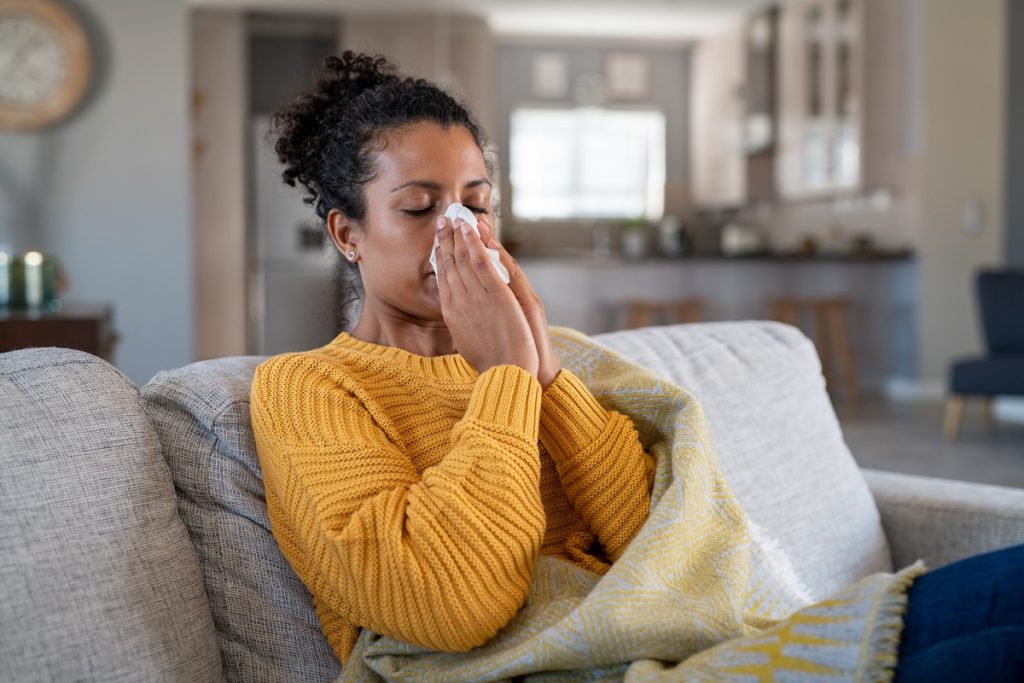- Allergies result from the immune system’s overreaction to allergens and can be influenced by genetics, environmental factors, and diet.
- Secondary allergy triggers include stress, smoking, and certain medications, while a weakened immune system can raise susceptibility.
- Allergy seasons vary, beginning with tree pollens in spring and mold spores in warmer, damp months.
- Prevention strategies include maintaining a well-kept yard, avoiding known allergens, monitoring local pollen counts, and regular personal hygiene.
- Severe allergy symptoms may require medications like antihistamines or epinephrine injections, with consultation from a healthcare professional.
Allergy season is a frustrating time of year for those with seasonal allergies. The symptoms can be severe and even debilitating. While allergies are common and affect many people, many don’t understand the causes and triggers of these pesky irritants. Here’s what you need to know about allergies, their causes when allergy season is, and ways to reduce their effects on you.
What Causes Allergies?
Allergies occur when the immune system overreacts to a usually harmless substance called an allergen. This immune system overreaction can trigger various symptoms, such as sneezing, itching, watery eyes, and even more severe reactions. Understanding the specific allergens that affect individuals and taking necessary precautions can help manage allergies and improve overall well-being. Here are some common reasons for allergies:
1. Genetics

One of the most significant causes of allergies is genetics. If you have a family history of allergies, you are more likely to develop them. Research shows that if one parent has allergies, your chances of having allergies increase by 25%, while if both parents have allergies, your risk goes up to 75%. This is because allergic susceptibility is often related to inherited immune system genes.
2. Environmental Factors
Environmental factors play a crucial role in triggering allergies. These include pollution, weather conditions, and exposure to allergens such as dust mites, pet dander, and pollen. Studies have shown increased allergy rates in urban areas with high pollution levels. Other triggering factors can include changes in weather patterns, such as high humidity levels and extreme weather events like hurricanes or floods.
3. Food
Food allergies affect millions worldwide, with children being more susceptible than adults. Food allergies occur when the body’s immune system mistakes specific food proteins as harmful and attacks them. The symptoms of food allergies can range from mild itching and hives to severe reactions such as anaphylactic shock. Common food allergens include peanuts, tree nuts, milk, eggs, soy, wheat, fish, and shellfish.
4. Secondary Factors
Secondary factors such as stress, smoking, and medications can also play a role in causing allergies. Stress causes the body to release certain hormones, weakening the immune system and making it more susceptible to allergic reactions. Smoking can increase inflammation and decrease lung function, increasing the risk of respiratory allergies. Certain medications, such as antibiotics and aspirin, can also trigger allergies in some patients.
5. Weakened Immune System
A weakened immune system can also lead to allergies. This can result from various factors such as illnesses, overuse of antibiotics, and poor diet. The immune system protects the body from harmful substances, so a weakened immunity increases the risk of allergic reactions.
When is Allergy Season
Allergy season can vary depending on where you live. In general, tree pollen season begins in the spring months. Grass pollen season follows in the summer, and ragweed pollen is in the fall. Airborne mold spores are highest during warmer months and damp weather conditions. Dust mites are present year-round but can worsen during periods when forced-air heating systems are used.
How to Reduce The Effects of Allergy Season
There are various ways you can reduce the effects of allergy season. Here are four ways:
Landscaping
The first step is to ensure that your yard is well-trimmed and maintained. You must remove weeds, especially ragweed, one of the most common causes of allergies. You should also mow your lawn regularly and keep it free of debris as much as possible. It’s okay to ask for help if you don’t have the time to do these things. A local landscaping service can help you maintain your yard and keep it weeds-free. Contact them to ensure they can check your yard and use the right tools for the job.

Avoid Triggers
It is also important to avoid substances that are known triggers for allergies, such as pet dander, pollen, dust mites, and mold. If you have an animal in the home, keep it clean and groomed regularly. If you’re going to be outside, try to limit your exposure to pollen and other allergens by wearing a mask or staying indoors.
Check Pollen Counts
Keep an eye on the pollen count in your area before going out for extended periods. You can also take steps such as closing windows and doors when counts are high, using air filters to reduce airborne particles, and showering and washing your clothes regularly.
Medications
If you’re experiencing severe allergy symptoms, it is essential to get the proper medications. Antihistamines can help reduce itching, sneezing, and other common symptoms. An epinephrine injection may be necessary for more severe reactions, such as anaphylactic shock. Talk to your doctor to determine what medications are best for you.
Allergies can make life difficult, but with knowledge and the proper precautions, you can reduce their impact on your daily life. Understanding the causes of allergies, when allergy season is, and ways to reduce their effects can help you enjoy a more comfortable spring and summer.

